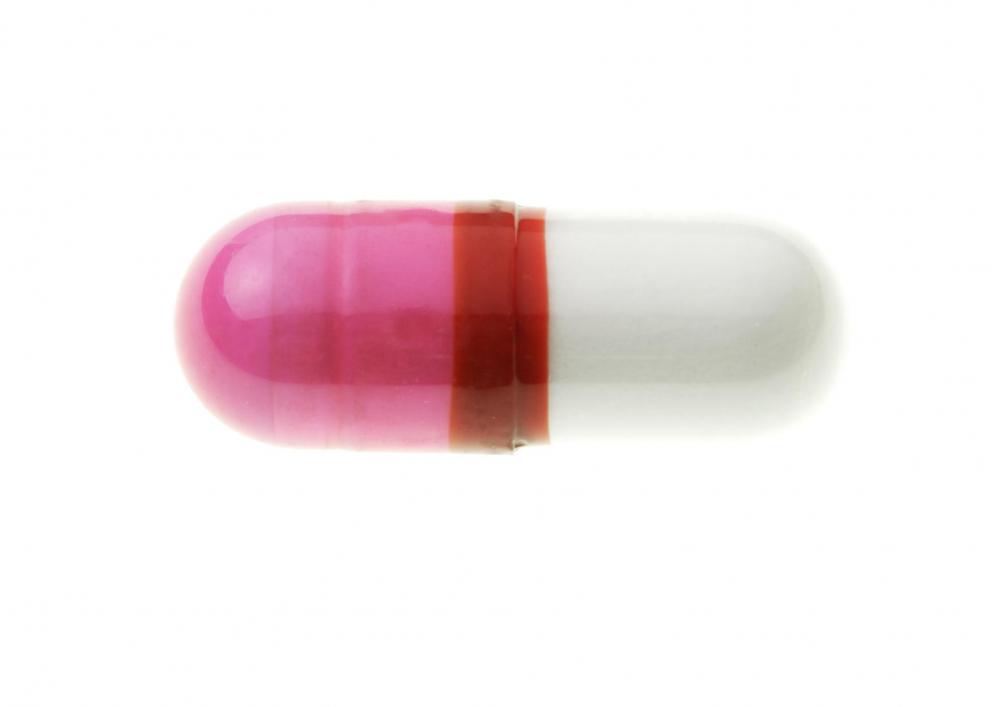At WiseGEEK, we're committed to delivering accurate, trustworthy information. Our expert-authored content is rigorously fact-checked and sourced from credible authorities. Discover how we uphold the highest standards in providing you with reliable knowledge.
How do I Choose the Best Antibiotics for Acne?
If you're considering antibiotics for acne treatment, you have several options. Picking the best one depends on both the severity of your acne as well as your history with antibiotics. There are antibiotic creams on the market as well as oral antibiotics. Both of these can be used to kill the bacteria that causes acne in the first place.
If you have mild acne, known as acne vulgaris, you may benefit from using a cream with antibiotics for acne. Such creams are most effective in conjunction with benzoyle peroxide. The type of antibiotic in these topical medications varies. Clindamyan, for example, may work for you if you've had little exposure to other antibiotics because your resistance to the medication will most likely be low. If you have inflammatory acne, erythromycin can be very effective in treating your skin condition.

Mild acne may respond to an amoxicillin antibiotic acne cream. This type of cream may not work for many people because this is the most common antibiotic prescribed for childhood and adult illnesses. By the time acne develops, your body may have already built up a tolerance to the medication. Topical antibiotics for acne can cause pain or stinging in the area it is applied. It can also cause your skin to burn very easily, thereby making sunscreen a must. In some cases, it can also cause your skin to become red or excessively dry, leading to peeling.

If you have severe acne, especially cystic acne, an oral medication may be appropriate. As with topical antibiotics, oral medication is best used in conjunction with a topical benzoyle peroxide cream or gel. Cystic acne is the result of a bacterial infection deep within the skin, making it difficult for topical treatments to penetrate enough to kill all of the bacteria.

Oral medications such as tetracycline and minocycline can be helpful for those resistant to other antibiotics. If you are pregnant, breastfeeding or under eight years old, however, most doctors will not prescribe these medications. One of the most popular antibiotics for acne treatment, especially inflammatory acne, is doxyclycline. The human body can build up a tolerance for this medication relatively quickly, however.
These types of medications are usually administered for six months or less, then slowly lowered during this time frame as the appearance of acne begins to reduce. While they are best for more severe cases of this skin disorder, the issue of tolerance is much higher with oral medications than it is with topical ones. From birth, antibiotics are typically prescribed at a very high rate for everything from ear infections to more serious health issues. As most people develop acne between the ages of 12 and 24, a resistance to many of the antibiotics for acne treatment can be an issue. Reviewing your medical history with a dermatologist and determining the severity of your acne will help you choose the best antibiotic for your condition.
AS FEATURED ON:
AS FEATURED ON:













Discussion Comments
I don't think that antibiotics are the best acne treatment.
I don't deny that they work. They usually do, but the effects are temporary and wear off after some time. There are also issues like antibiotic resistance and side effects.
I think that antibiotics should be the last option as an acne treatment. The benefits should far outweigh the risks. Someone with severe cystic acne and nodules will benefit from antibiotic treatment. But someone with mild acne should not even consider antibiotics. And it's a good idea to try a milder antibiotic first and only use the stronger ones if nothing else is working. The stronger the antibiotic, the greater the side effects.
@ZipLine-- There are other options that you could try like erythromycin, trimethoprim and tetracycline group antibiotics. These are stronger and work better for stubborn and severe acne. Talk to your doctor about the doxycycline not working.
By the way, how long did you take the doxycycline for? Remember that it takes a while to see the effects of antibiotics on acne. It can take just a few weeks, but it may also take up to three months to see the maximum effects. So make sure that you have tried an antibiotic for the recommended time frame before deciding that it does not work.
What is the best antibiotic acne treatment for stubborn acne that doesn't respond to other treatments?
I've tried doxycyline but it didn't work. What should I use?
Post your comments